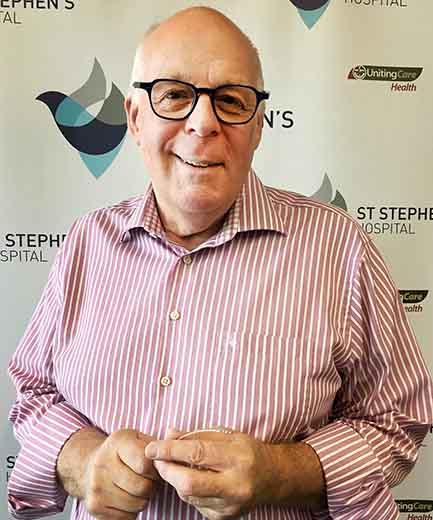St Stephen’s Hospital has introduced a first-of-its-kind incontinence service providing more options, improved outcomes and relief for the Fraser Coast community.
The service is led by Dr Philip Hall, a gynaecologist with more than 30 years’ experience in women’s health.

This service will deliver treatment options including Botox, sacral neuromodulation and minimally invasive techniques in the management of prolapse and urinary incontinence.
While all the treatment options now available at St Stephen’s Hospital have been offered in metropolitan areas for many years, Dr Hall recently performed the first sacral neuromodulation case in Hervey Bay.
“I recognised that many of my Fraser Coast patients were travelling to Brisbane and a local service wasn’t available,” Dr Hall said.
“It was important to me that travel wasn’t a barrier for women living in Queensland regional towns. They deserve the same access to high level medical services as their counterparts in the capital city.”
About 4.8 million Australians are affected by urinary or faecal incontinence. It impacts men and women of all ages and can have a major impact on quality of life.
A lack of control over bladder and bowel movements has led to a stigma associated with the condition. In many cases patients are embarrassed discussing it with their doctor.
Dr Hall and his team at St Stephen’s Hospital are trying to reduce the impact of this stigma and offer the community hope.
“Incontinence is not a part of normal aging and people should not suffer in silence. It is highly treatable. Without treatment incontinence may increase the risk of disability and cause social isolation.
“This treatment can transform lives, dramatically making a difference to quality of life for those affected by urinary and faecal incontinence.”
With sacral neuromodulation, a small device, similar to a pacemaker, is surgically implanted to send mild electrical pulses to the sacral nerves.
Located near the tailbone, the sacral nerves control the bladder and the muscles related to urination. If the brain and sacral nerves don’t communicate correctly, the nerves can’t tell the bladder to function properly.
Anyone experiencing involuntary bladder or bowel movements is encouraged to speak with their local GP who can request a referral to St Stephen’s Hospital.
Dr Philip Hall is a consultant gynaecologist at St Stephen’s Hospital with a special interest in pelvic floor medicine and reconstructive surgery. He has been involved in rural women’s health for 30 years.